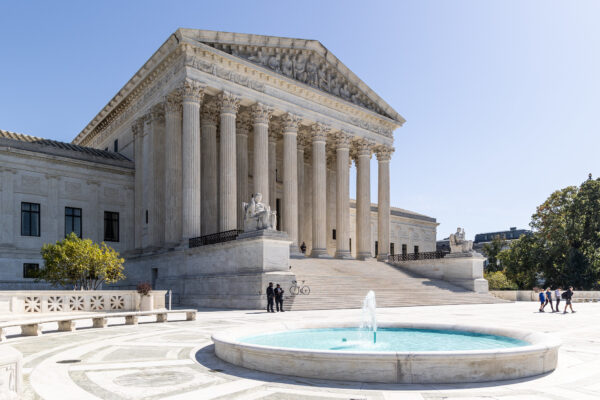
The U.S. Supreme Court Building (Photo: Billy Wilson)
The U.S. Supreme Court is considering whether thousands of medically retired Veterans like former Marine Cpl. Simon Soto should be eligible for more years of retroactive combat-related special compensation for service-connected injuries.
Soto, who served in mortuary affairs during two tours in Iraq, developed post-traumatic stress disorder from his work recovering the remains of fallen Service Members. He was medically retired in 2006 and started receiving disability compensation from the VA in 2009. In 2016, he applied for combat-related special compensation, or CRSC, a tax-free benefit for military retirees whose disabilities are tied to combat.
Although the Navy approved his request, it only granted payments retroactive to 2010 rather than 2008, when a change in federal law made medically retired Veterans like Soto eligible for the benefit. The Navy cited the Barring Act, which limits financial claims against the government to a six-year window, as the reason for restricting Soto’s retroactive payments.
Soto challenged the decision in a class action lawsuit representing over 9,000 Veterans. He argued that CRSC claims are not subject to the Barring Act because the CRSC law provides its own method for processing and settling claims. In 2021, a federal district court ruled in Soto’s favor, finding that the CRSC statute includes a settlement mechanism that overrides the six-year limit. However, a federal appeals court reversed that ruling in February 2024, prompting Soto to bring the case before the Supreme Court.
On April 28, the justices asked during oral arguments how a ruling in Soto’s favor would affect other military compensation programs. Justice Department attorney Caroline Flynn said allowing exceptions could affect six other benefit programs, including the $100,000 death gratuity and disability severance pay, potentially leading to retroactive payouts.
Chief Justice John Roberts expressed concern that ruling for Soto could undermine a key safeguard protecting public funds. “If our ruling is that this is enough to get past the [Barring Act] based on this statute, the idea is that it would sort of open the barn door,” he said.
Soto’s attorney, Tacy Flint, argued the CRSC statute is clear that the secretaries of the military branches are responsible for settling claims, and it includes no mention of a time limit. “That’s fairly explicit,” Flint said, adding that Veterans should not be penalized for delays caused by the complexity of navigating military and VA systems.
The outcome of the case, Soto v. United States, is expected by the end of June and could determine whether thousands of Veterans are owed additional years of compensation for combat-related injuries. Veterans’ advocates argue that the government has wrongly withheld full benefits from those who served under hazardous and traumatic conditions.












